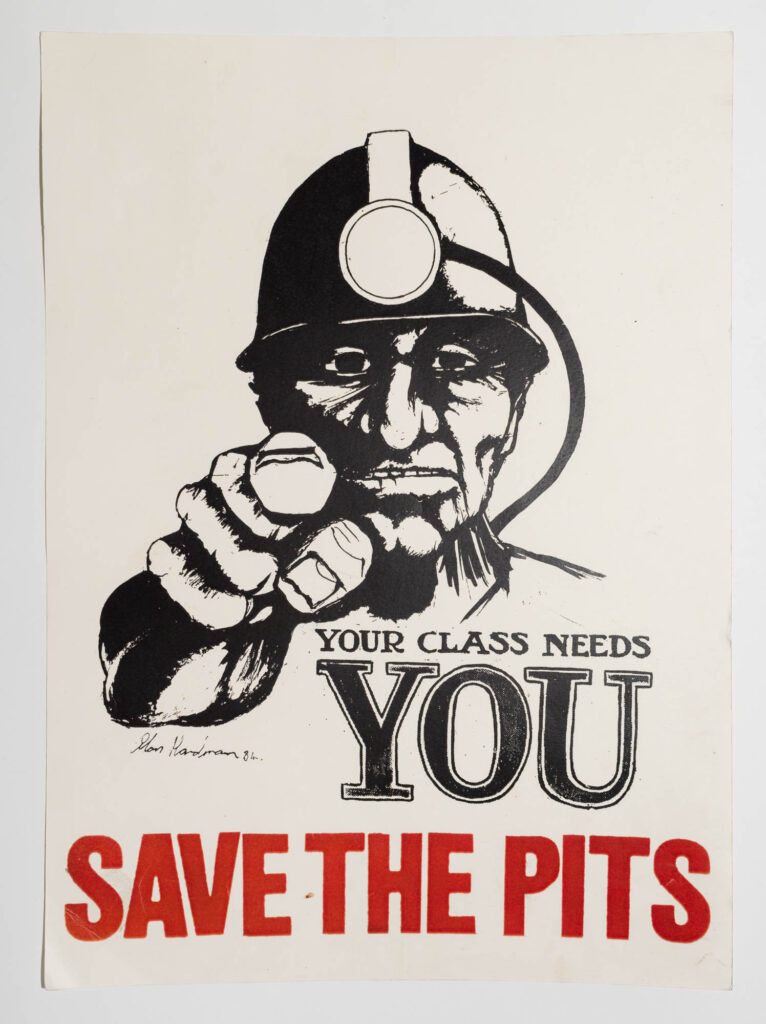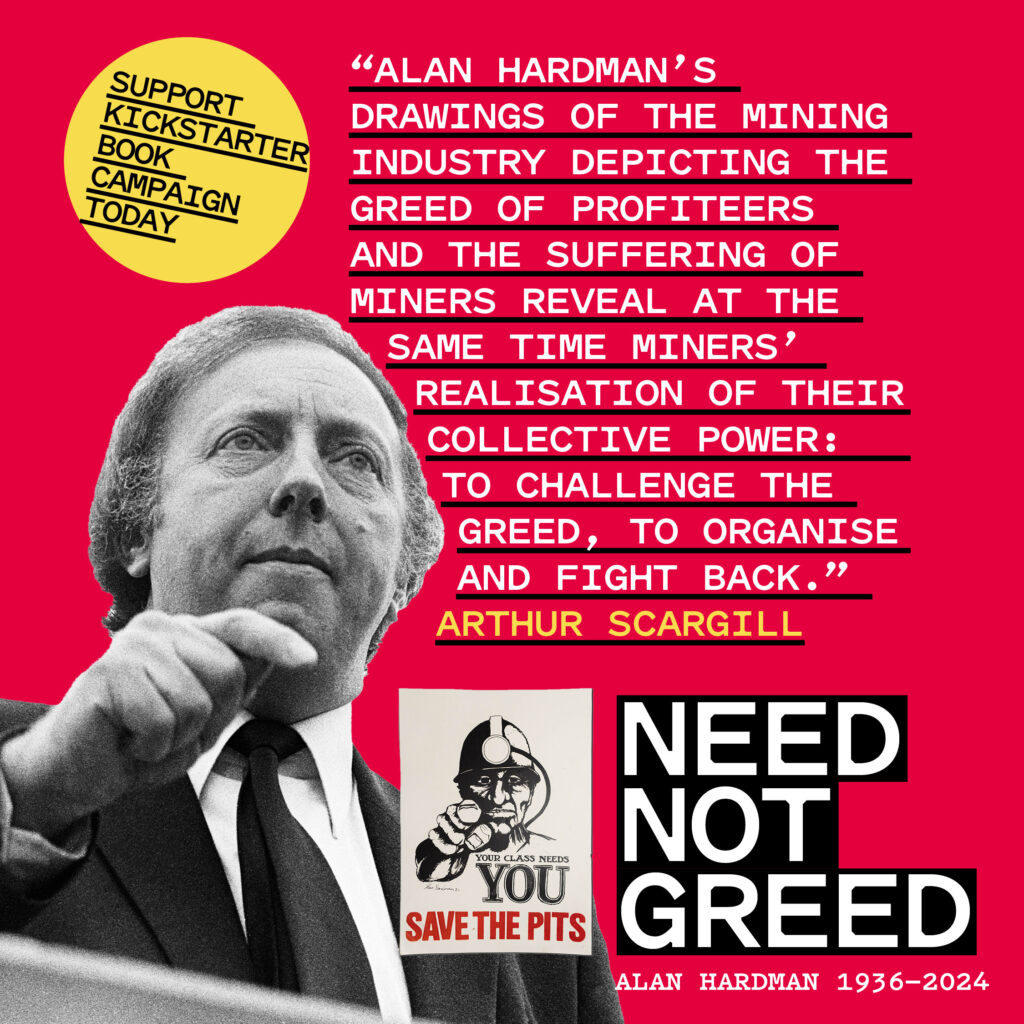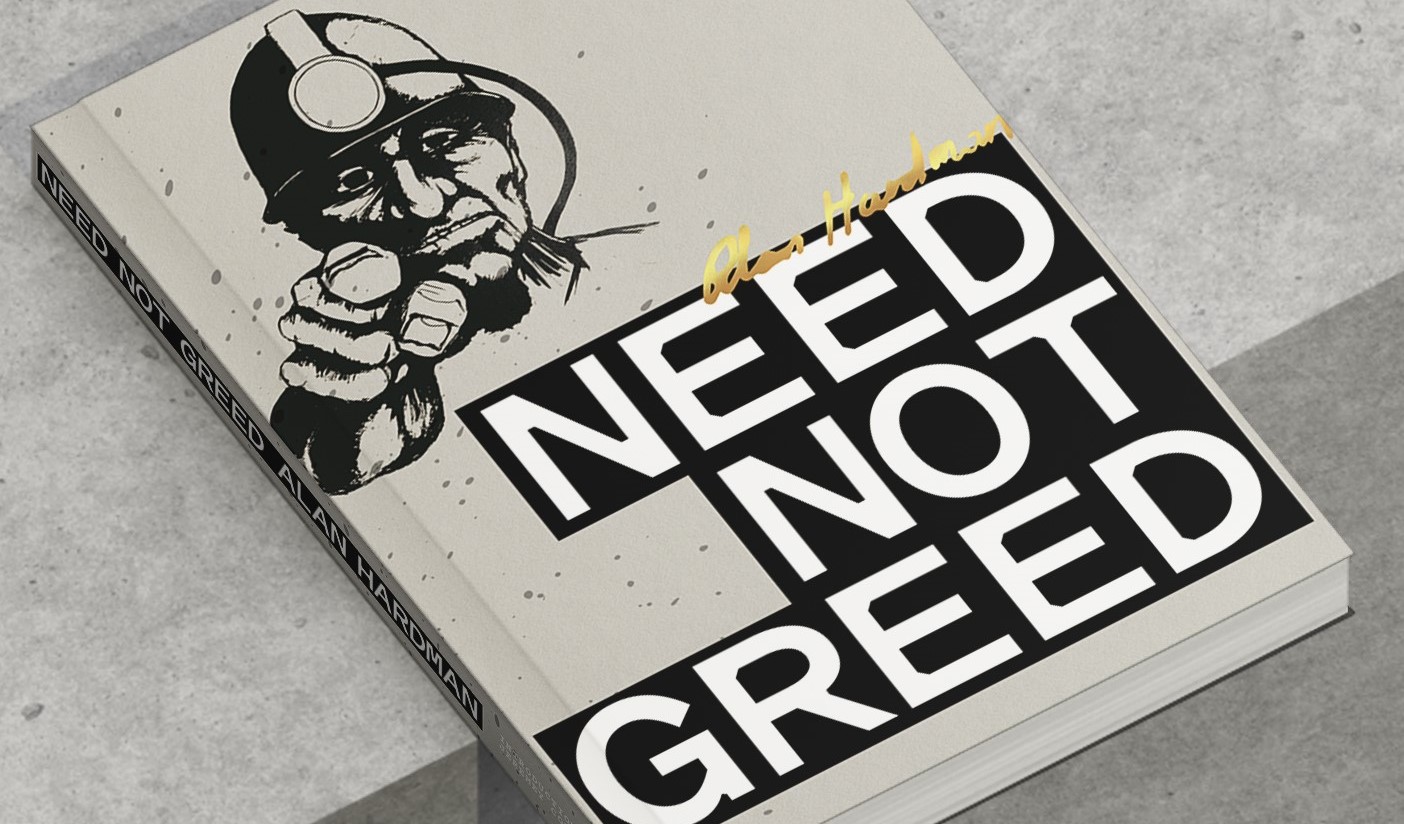By Left Horizons
Alan Hardman’s book of political cartoons, Need not Greed, is coming out, reflecting the work of the most consistently socialist cartoonist of the past period. Alan sadly passed away in January, so unfortunately, he didn’t see the preparations for the book come to fruition, but some of his friends and supporters continued the project and are seeing it through to its conclusion.
Arthur Scargill, the national president of the National Union of Mineworkers, noteably during the year-long strike in 1984-85, paid a glowing tribute to Alan’s work. “Looking carefully at the art of Alan Hardman”, he wrote, “the term ‘cartoon’ strikes me as inappropriate. The dictionary defines a cartoon as ‘a drawing intended as satire, or caricature’, meant to make us laugh and to bring out the cynic in us.
The depth of compassion in Alan’s work” he continued, “goes well beyond that. His drawings of the mining industry depicting the greed of profiteers and the suffering of miners reveal at the same time miners’ realisation of their collective power: to challenge the greed, to organise and fight back.”
“Alan’s book will have pride of place on my bookshelf” – Corbyn
Jeremy Corbyn MP also paid tribute to Alan’s work in a foreword. “This book”, he writes, “will inspire today’s and future generations of young activists to take up the reins in working to improve living standards through real socialist change. I am confident that they will take up the cause and build a future in favour of the many not the few.My copy of Alan’s book will take pride of place alongside two of his cartoons that hang on my wall at home.”

This is a fitting tribute to Alan’s razor sharp political cartoons with the book due to be launched during the 40th Anniversary of the miners’ strike. Throughout the strike, Alan’s cartoons provided images that richly reflected the miners’ resolve, the solidarity of workers and the support of the general public, many of whom saw the bigger picture beyond the Tories’ venomous attack on unions. The cartoons were often created following conversations with miners and would be drawn within hours, and often appear on the picket lines the next day.
Complex ideas distilled into deceptively simple imagery
Created with an anger and a passion, Alan’s great talent was to take complex situations, disputes and injustices, and distil them into deceptively simple ideas that quickly communicated where he and thousands of others stood.
Alan Hardman was fascinated by the caricatures of George Grosz, a German artist from the 1930s, who used art and humour to warn the world about Hitler. It was an influence that could be regularly seen in his blistering caricatures of, among others, Richard Nixon, Margaret Thatcher and Tony Blair for the Militant newspaper – a publication he played a key role in producing, not just as cartoonist, but also as printer and designer when the publication went fortnightly in 1971.
Born in 1936, Alan was from a Barnsley mining family, so the strike that began in 1984 had a particular resonance with him. (A short video interview with Alan can be found here.) The many cartoons he produced during that period illustrated his emotion and rage about his own family background and this crucial part of the political and social history of the 20th century.
They also played a key role in articulating the strikers’ position and power and did not hold back in their unwavering fervour. One single-frame image, for example, shows a missile heading towards a ship and on the bomb is scrawled ‘Miners Strike’, while the battleship was the ‘Thatcherano’, a nod to the Argentine battleship, General Belgrano, sunk during the Falklands War).

“My caricatures of Thatcher became more beastly over the years…”
“My caricatures of Thatcher over the years became more beastly,” Alan said. “It was an inner feeling of how beastly she was in her attacks on the working class and although the caricatures became more beastly, she remained recognisable throughout.”
Beyond Militant, the cartoons were (and still are) used in a wide range of ways – leaflets, posters, etc. One cartoon depicting the wrecking-ball tactics the Tories were taking to local services adorned the side of a house in Liverpool.
Need Not Greed also includes Alan’s response to the Iraq War, apartheid in South Africa, the role of the royal family, Grenfell and the battle to save the NHS, with contributions providing wider context to the struggles he was articulating.
The funding for Alan’s book has been helped by a ‘Kickstarter’ campaign, and it is not too late to make a donation and if you haven’t already ordered your copy, you can do so here. An obituary for Alan Hardman can be found here and a previous review of his book here.



